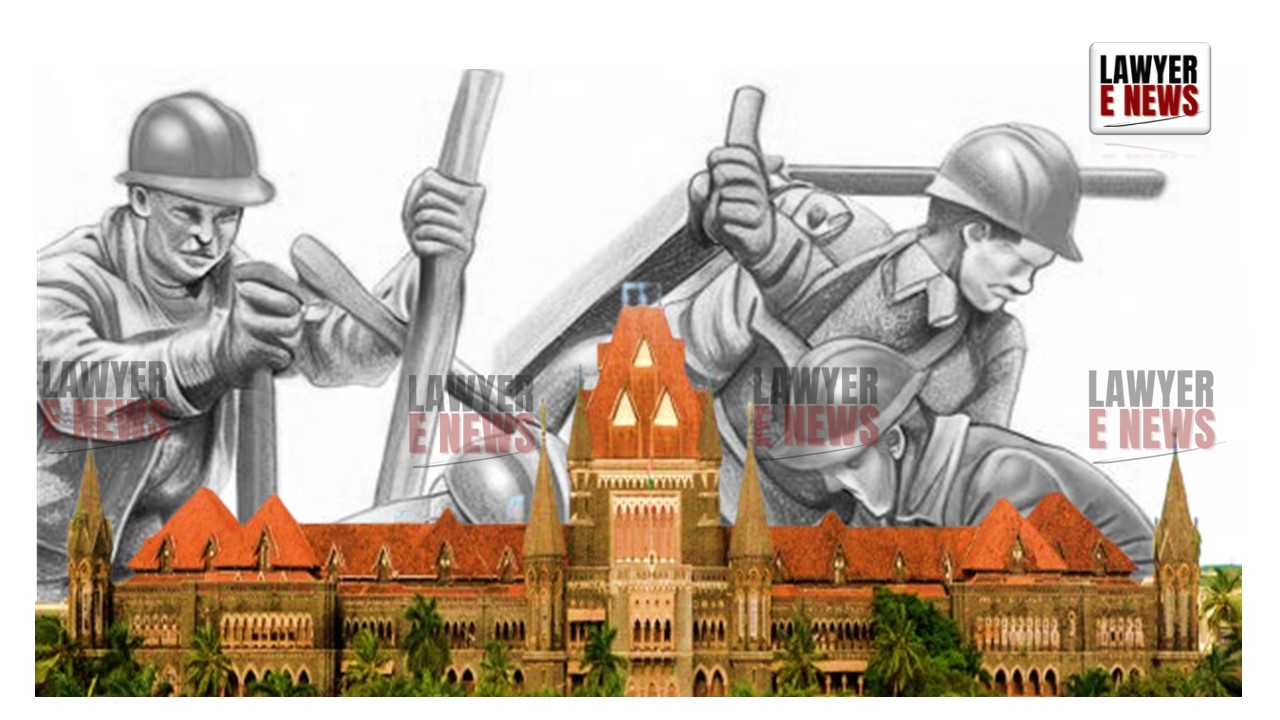-
by Admin
15 February 2026 2:36 AM



"Model Code of Conduct Does Not Impede Ongoing Statutory Welfare Measures," Holds Bombay High Court. On November 6, 2024, the Bombay High Court delivered a landmark ruling in Maharashtra Rajya Bandhkam Kamgar Sanyukt Kriti Samiti & Ors. vs. State of Maharashtra & Ors., addressing the legality of suspending welfare measures for construction workers under the Building and Other Construction Workers (Regulation of Employment and Conditions of Service) Act, 1996 ("BOCW Act") due to the imposition of the electoral Model Code of Conduct. The court ruled that the Model Code of Conduct does not justify halting statutory welfare benefits and ordered the immediate resumption of registration, renewals, and disbursal of benefits under pre-existing schemes.
The case arose after the Maharashtra Building and Other Construction Workers’ Welfare Board issued a Circular on October 17, 2023, suspending registrations, renewals, and other welfare measures for construction workers under the BOCW Act, citing the enforcement of the Model Code of Conduct for the upcoming Maharashtra Legislative Assembly elections. Several workers' unions, represented by senior advocate Ms. Sudha Bharadwaj, challenged this suspension, arguing that it unlawfully deprived construction workers of statutory benefits unrelated to election activities.
The petitioners argued that the BOCW Act, a welfare legislation enacted by Parliament, mandates the registration of construction workers to provide them with health, safety, and other welfare benefits. Ms. Bharadwaj emphasized that these benefits are ongoing statutory entitlements and not discretionary grants that could be influenced by the election process.
The court agreed, stating, "The registration of building workers is a central and imperative feature for the very administration of the statutory provisions of the Act." The court highlighted that the Act provides workers with essential protections, including health and maternity cover, educational allowances, and housing benefits, which cannot be interrupted by the electoral process.
The court analyzed the scope of the Model Code of Conduct, which primarily aims to prevent political parties in power from using public resources to influence voters. The Model Code prohibits the announcement of new schemes or projects during the election period but does not extend to the suspension of pre-existing statutory benefits.
Citing Paragraph II(2) of the Model Code, the court noted, "National, regional, and state utility schemes, which have already been brought up to the stage of completion, should not be stopped or delayed." The court observed that suspending ongoing welfare measures under the BOCW Act was unjustified, as these are statutory rights and not new benefits aimed at influencing the electorate.
Quashing of the Circular: The court declared the October 17, 2023, Circular void and ultra vires the BOCW Act, stating that the welfare benefits under the Act must continue even during the enforcement of the Model Code of Conduct. The court held, "There is no basis to suspend the registration and renewal process on account of the Model Code of Conduct, as it has no bearing on the ongoing statutory functions under the Act."
Immediate Resumption of Welfare Measures: The court directed the Welfare Board to restore the registration process and resume the disbursal of benefits within one day of the judgment. It ordered that the online portal used for registration and administration of benefits should be fully accessible.
Restrictions on Publicity Activities: While allowing the continuation of welfare schemes, the court mandated that any publicity related to the welfare measures should be minimal and devoid of political fanfare or involvement of political figures to ensure compliance with the Model Code.
Prohibition on New Schemes: The judgment clarified that no new schemes or additional benefits could be introduced during the election period, emphasizing that only pre-existing statutory entitlements could be maintained.
This ruling underscores the Bombay High Court's commitment to protecting the statutory rights of workers, even during sensitive election periods. The court upheld that the Model Code of Conduct cannot override statutory entitlements established under welfare legislation like the BOCW Act. It reaffirmed that the rights of marginalized and unorganized workers to essential benefits must not be curtailed due to administrative overreach during elections.
Date of Decision: November 6, 2024
